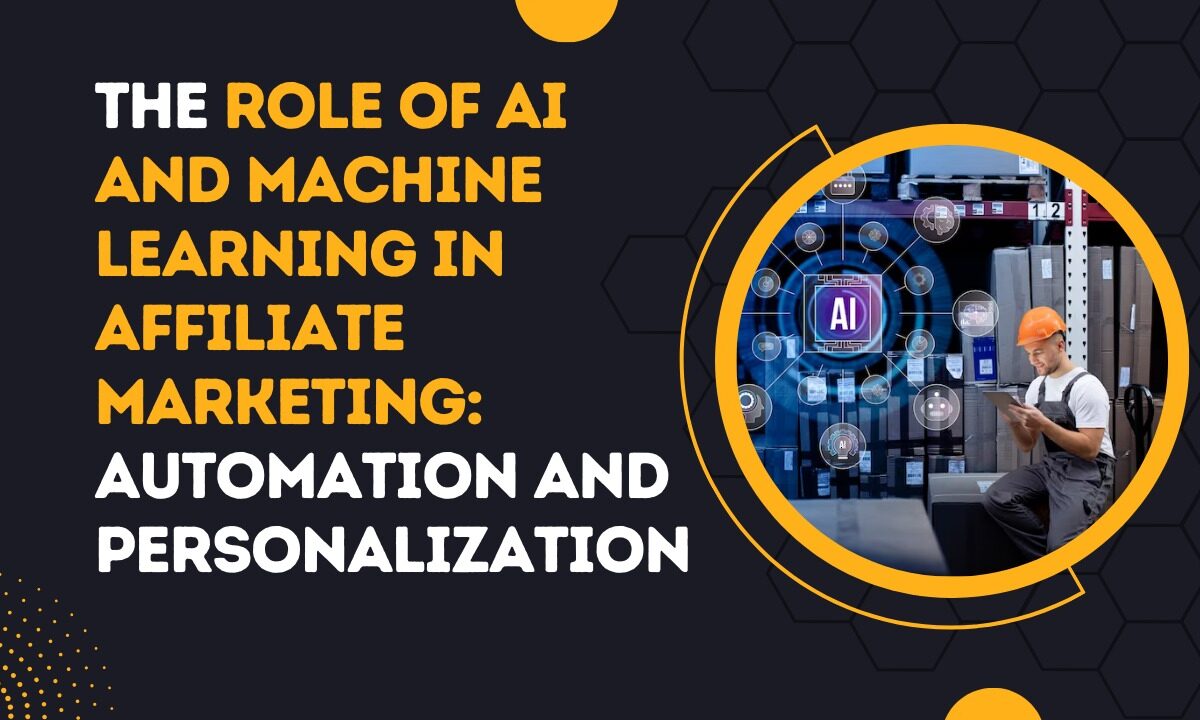The Role of AI and Machine Learning in Affiliate Marketing: Automation and Personalization
Did you know that affiliate marketing is set to become a $15.7 billion industry by 2024? It’s true! Think of it as online matchmaking—it’s where advertisers, publishers, and consumers come together for mutual benefit.
Advertisers get their products noticed, publishers earn money for promoting those products, and consumers find what they need with just a click.
Now, let’s talk about AI and machine learning.
They’re like the superheroes of the digital world, quietly working behind the scenes to make everything smoother. These fancy terms aren’t just for show—they’re what makes personalized ads and smart recommendations possible.
So, how exactly are AI and machine learning changing affiliate marketing? That’s what we’ll explore in this blog post. Get ready for an adventure into the world of digital marketing, where AI and machine learning are the stars of the show!
1. Understanding Affiliate Marketing
Affiliate marketing is a partnership between companies (advertisers) and individuals or businesses (publishers).
Here publishers promote the products or services of the advertisers through various channels such as websites, social media, or email marketing.
Usually, a consumer makes a purchase or performs a desired action (like signing up for a newsletter). This happens through the publisher’s referral link, and the publisher earns a commission.
Check out this article on how affiliate commissions and payments work to learn more about how affiliate marketing works and how you can earn from it.
1.1. Importance of Affiliate Marketing in Digital Marketing Strategies:
Affiliate marketing is a crucial component of digital marketing strategies due to its cost-effectiveness and ability to reach highly targeted audiences.
It allows advertisers to expand their reach through various channels without the upfront costs associated with traditional advertising methods. Additionally, affiliate marketing leverages the trust and authority of publishers, making it more effective in driving conversions.
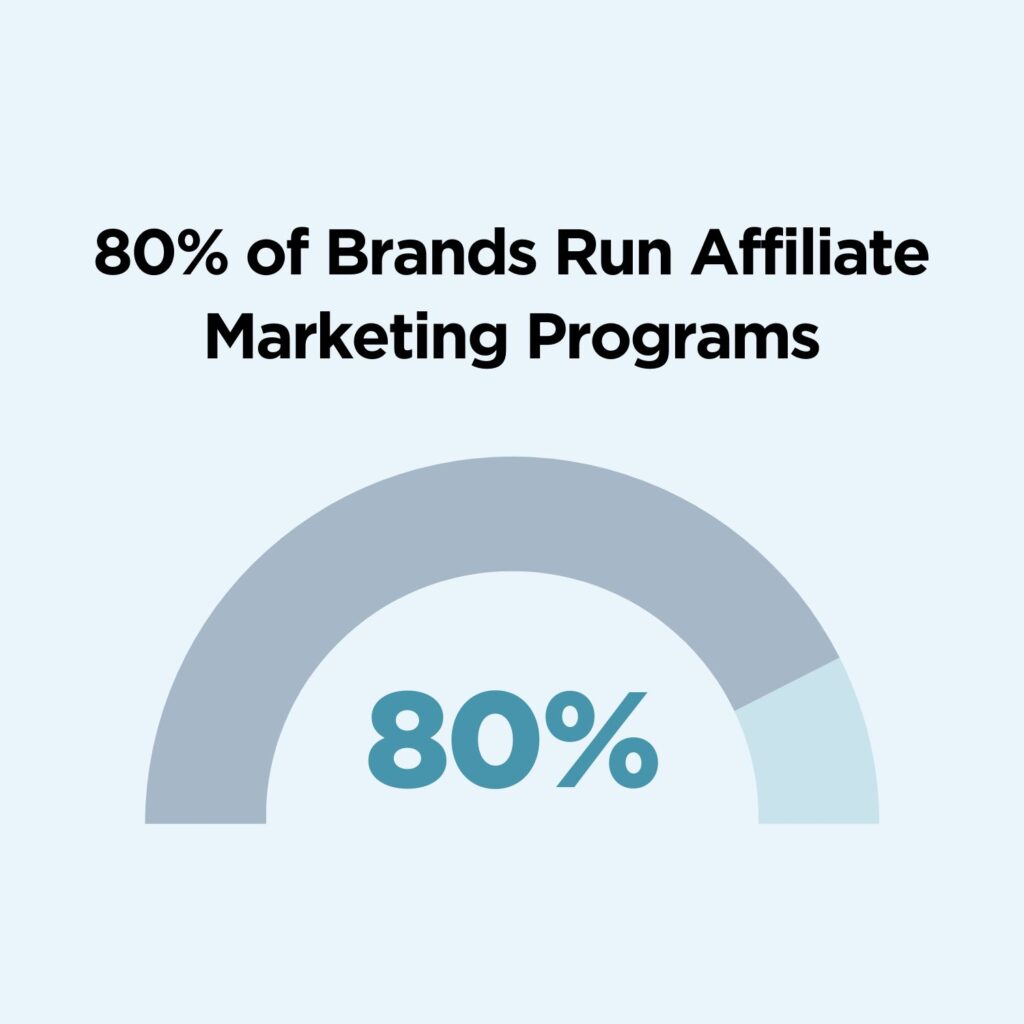
1.2. Key Players Involved: Advertisers, Publishers, and Consumers:
- Advertisers: These are companies or brands that offer products or services and want to increase sales or leads. Advertisers create affiliate programs and provide promotional materials for publishers to use.
- Publishers: Publishers are individuals or businesses that promote advertisers’ products or services through their marketing channels. It can include bloggers, influencers, content creators, and website owners.
- Consumers: Consumers are the end-users who purchase products or services through affiliate links. The content created by publishers and the recommendations they provide may influence them.
Affiliate marketing creates a win-win situation for all parties involved—advertisers increase sales, publishers earn commissions, and consumers find products or services they’re interested in through trusted recommendations.
2. The Evolution of AI and Machine Learning
2.1. Overview of AI and Machine Learning Technologies
Artificial Intelligence (AI) refers to the simulation of human intelligence in machines, enabling them to perform tasks that typically require human intelligence, such as learning, problem-solving, and decision-making.
Machine Learning (ML) is a subset of AI that trains algorithms to learn from data and make predictions or decisions without being explicitly programmed.
2.2. Evolution of AI in Digital Marketing
AI has rapidly evolved in the field of digital marketing, transforming the way businesses engage with their audience and optimize their marketing efforts. Initially, AI was used for basic tasks like automating email campaigns and analyzing website traffic.
However, advancements in AI technology, coupled with the availability of vast amounts of data, have led to more sophisticated applications in digital marketing.
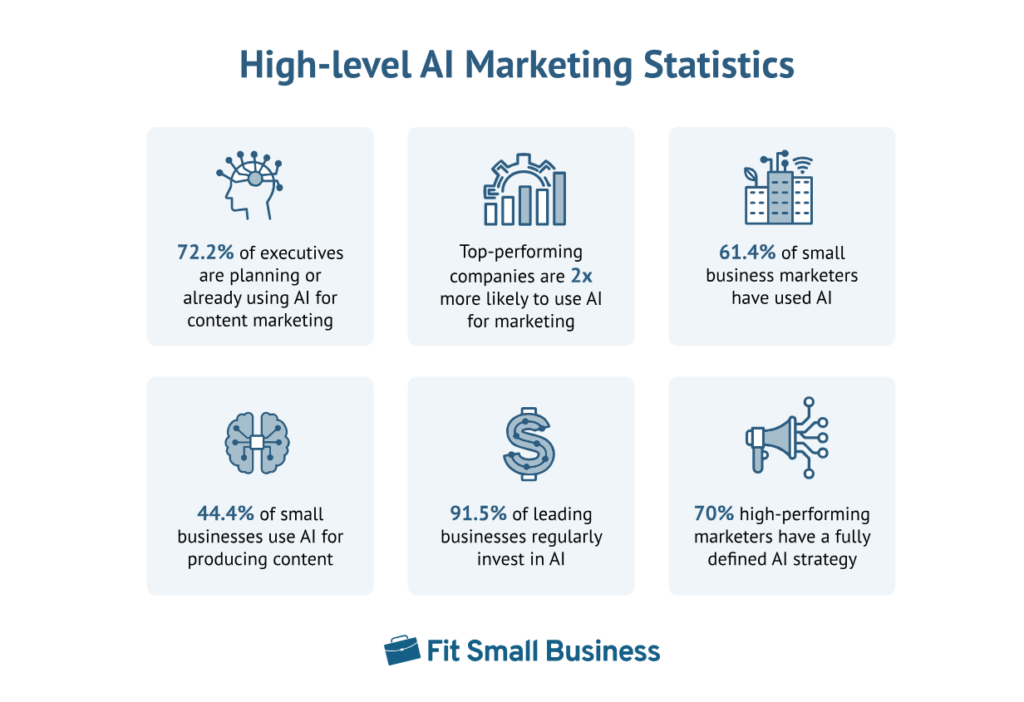
2.3. Impact of Machine Learning Algorithms on Marketing Strategies
Machine learning algorithms have revolutionized marketing strategies by enabling businesses to analyze vast amounts of data and extract valuable insights. These insights can personalize marketing campaigns, optimize advertising strategies, and predict customer behavior.
For example, ML algorithms can analyze consumer data to identify patterns and treds, allowing businesses to tailor their marketing messages to specific audience segments.
Additionally, ML algorithms can optimize advertising campaigns by automatically adjusting bids, targeting parameters, and ad creatives based on real-time data.
AI and machine learning technologies have had a profound impact on the field of digital marketing, enabling businesses to improve targeting, personalization, and optimization of marketing campaigns.
As AI continues to evolve, we can expect even more innovative applications that will further enhance the effectiveness of digital marketing strategies.
3. Automation in Affiliate Marketing
In the fast-paced world of affiliate marketing, efficiency is key. That’s where Artificial Intelligence (AI) steps in, streamlining processes and maximizing results like never before.
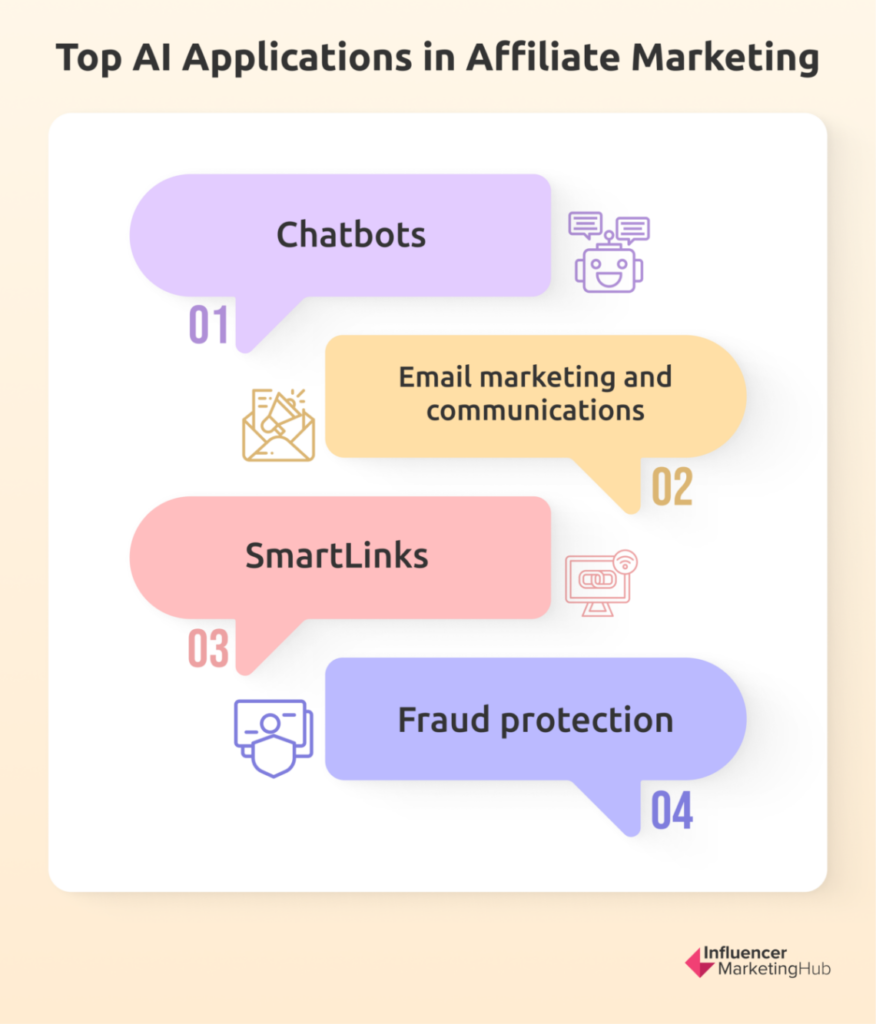
Let’s explore how AI is revolutionizing affiliate marketing through automation:
3.1. How AI Streamlines Affiliate Marketing Processes:
AI automates repetitive tasks, freeing up valuable time for marketers to focus on strategy and creativity. From data analysis to customer segmentation, AI-powered tools can handle it all, allowing affiliate marketers to scale their efforts and reach new heights.
3.2. Automated Content Generation for Affiliate Websites:
Creating high-quality content is essential for attracting and engaging audiences. With AI, content generation becomes a breeze. Natural Language Processing (NLP) algorithms can generate compelling blog posts, product descriptions, and reviews in seconds, saving affiliates hours of manual work.
3.3. Automated Ad Placements and Optimization:
AI-powered advertising platforms take the guesswork out of ad placements and optimization. Machine Learning algorithms analyze user behavior in real-time to deliver targeted ads to the right audience at the right time. This results in higher click-through rates, conversions, and ultimately, more revenue for affiliates.
In conclusion, AI is the secret weapon that affiliate marketers need to stay ahead of the curve. By embracing automation, affiliates can streamline processes, generate high-quality content, and optimize ad campaigns like never before.
The result? More time, more revenue, and more success in the competitive world of affiliate marketing.
4. Personalization in Affiliate Marketing
In the digital age, where consumers are inundated with endless options, personalized marketing has become more crucial than ever.
Let’s delve into why personalized marketing matters and how Artificial Intelligence (AI) plays a pivotal role in achieving it within affiliate marketing:
4.1. Importance of Personalized Marketing in the Digital Age:
Personalized marketing is all about delivering tailored messages and recommendations to individual consumers based on their preferences, behavior, and demographics. In a world where consumers crave authenticity and relevance, personalized marketing allows brands to forge deeper connections, drive engagement, and ultimately, boost conversions.
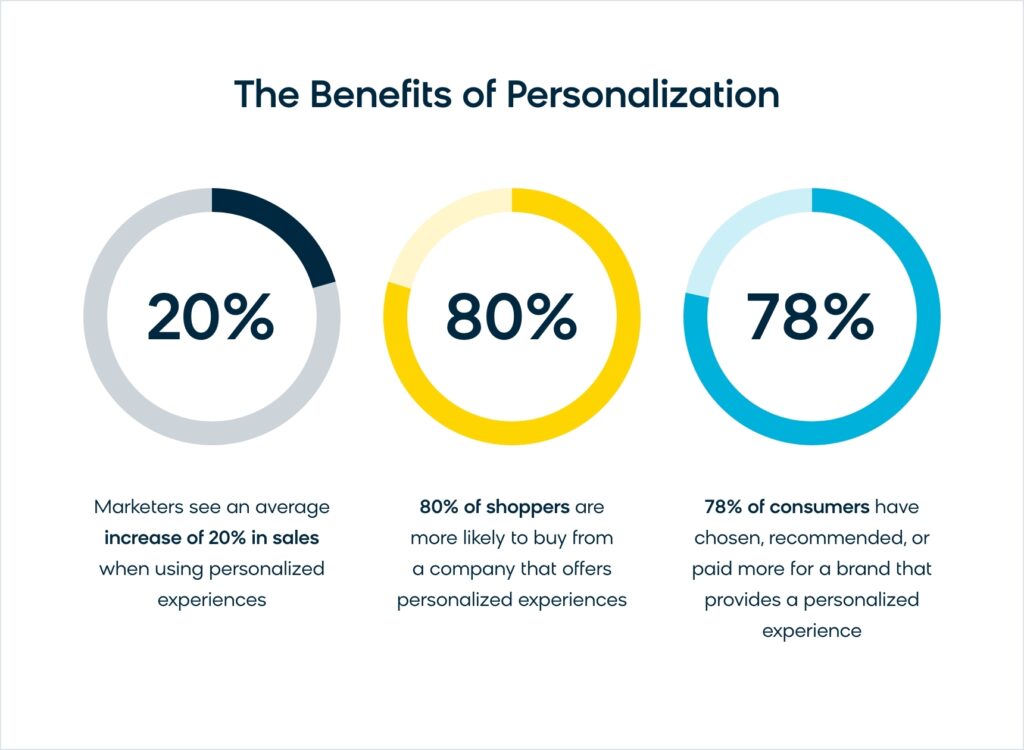
4.2. Role of AI in Understanding Consumer Behavior and Preferences:
AI is a game-changer when it comes to understanding consumer behavior and preferences.
Through advanced algorithms and machine learning models, AI can analyze vast amounts of data—including browsing history, purchase patterns, and social media interactions—to gain valuable insights into consumer preferences, interests, and purchasing intent.
Armed with this knowledge, affiliate marketers can create hyper-targeted campaigns that resonate with their audience on a personal level.
4.3. Personalized Product Recommendations for Affiliate Marketing:
One of the most powerful applications of AI in affiliate marketing is personalized product recommendations. By leveraging AI-driven recommendation engines, affiliate marketers can deliver relevant product suggestions to consumers based on their past purchases, browsing behavior, and preferences.
Whether it’s suggesting complementary products or highlighting items based on recent searches, personalized product recommendations enhance the shopping experience, increase engagement, and drive conversions.
In summary, personalized marketing powered by AI is the future of affiliate marketing.
5. Challenges and Ethical Considerations
As affiliate marketers harness the power of Artificial Intelligence (AI) and machine learning to enhance their strategies, they must navigate through various challenges and ethical considerations:
5.1. Potential Challenges in Implementing AI and Machine Learning in Affiliate Marketing:
- Data Quality and Quantity: Obtaining high-quality and sufficient data for training AI models can be challenging, especially for smaller affiliate marketers with limited resources.
- Algorithm Bias: AI algorithms may inadvertently perpetuate biases present in the training data, leading to unfair or discriminatory outcomes.
- Integration Complexity: Implementing AI and machine learning technologies into existing affiliate marketing systems may require significant technical expertise and resources.
- Cost: Developing and maintaining AI-powered solutions can be costly, particularly for smaller affiliates operating on tight budgets.
5.2. Ethical Considerations Regarding Data Privacy and Consumer Trust:
- Data Privacy: Collecting and utilizing consumer data for personalized marketing raises concerns about privacy and data protection. Affiliate marketers must ensure compliance with relevant regulations (such as GDPR) and prioritize transparency and consent when handling consumer data.
- Consumer Trust: Consumers are increasingly wary of data misuse and privacy breaches. Affiliate marketers must be transparent about how they collect and use data, provide clear opt-in/opt-out mechanisms, and prioritize data security to maintain consumer trust.
5.3. Strategies for Overcoming Challenges and Maintaining Ethical Standards:
- Data Transparency and Consent: Be transparent with consumers about data collection and usage practices, and obtain explicit consent before collecting personal information.
- Algorithm Auditing: Regularly audit AI algorithms to identify and mitigate biases and ensure fair and unbiased outcomes.
- Data Security Measures: Implement robust data security measures, such as encryption and access controls, to protect consumer data from unauthorized access or breaches.
- Continuous Education and Training: Invest in ongoing education and training for affiliate marketers to ensure awareness of ethical considerations and compliance with regulations.
- Collaboration and Partnerships: Collaborate with reputable technology providers and data partners to ensure compliance with ethical standards and best practices.
By addressing these challenges and prioritizing ethical considerations, affiliate marketers can leverage the power of AI and machine learning while upholding consumer trust and privacy, ultimately driving sustainable growth and success in the affiliate marketing industry.
6. Future Trends and Opportunities
As we look ahead, the future of affiliate marketing is intertwined with exciting advancements in Artificial Intelligence (AI) and machine learning. Here are some emerging trends, opportunities, and predictions for the future of AI-driven affiliate marketing:
6.1. Emerging Trends in AI and Machine Learning for Affiliate Marketing
- Hyper-Personalization: AI-driven personalization will become even more sophisticated, allowing affiliate marketers to deliver hyper-targeted content and recommendations tailored to individual preferences and behaviors.
- Predictive Analytics: AI-powered predictive analytics will enable affiliate marketers to anticipate consumer needs and behavior, allowing for more proactive and strategic marketing campaigns.
- Voice and Visual Search: With the rise of voice assistants and visual search technology, AI will play a crucial role in optimizing affiliate marketing content for voice and visual search queries, opening up new avenues for engagement and conversion.
- Cross-Channel Integration: AI-powered solutions will facilitate seamless integration across multiple marketing channels, enabling affiliate marketers to deliver consistent and cohesive experiences across websites, social media, email, and other touchpoints.
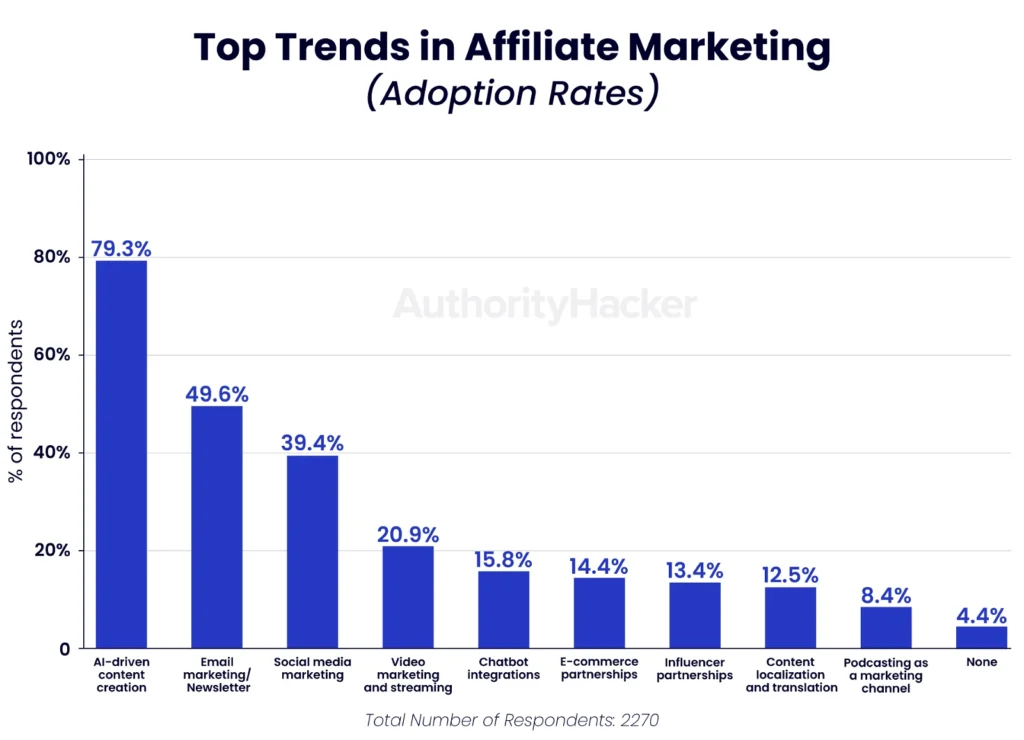
6.2. Opportunities for Innovation and Growth in the Field:
- AI-Powered Tools and Platforms: The development of AI-powered tools and platforms like Voluum and Affise specifically tailored for affiliate marketers will unlock new opportunities for automation, optimization, and scalability.
- Data Collaboration and Partnerships: Collaboration with data partners and technology providers will enable affiliate marketers to access high-quality data and advanced AI capabilities, driving innovation and competitive advantage.
- Niche and Vertical Expansion: AI-driven affiliate marketing will open up opportunities for niche and vertical expansion, allowing marketers to target specialized audiences and industries with precision and effectiveness.
6.3. Predictions for the Future of AI-Driven Affiliate Marketing:
- AI as the Backbone of Affiliate Marketing: AI will become the backbone of affiliate marketing, powering every aspect of the affiliate ecosystem from content creation and audience targeting to performance optimization and attribution.
- Rise of AI-Powered Influencer Marketing: AI will revolutionize influencer marketing by enabling more data-driven strategies, identifying the most relevant influencers, and optimizing influencer partnerships for maximum impact and ROI.
- Greater Integration with E-Commerce Platforms: AI-driven affiliate marketing will become seamlessly integrated with e-commerce platforms like Amazon, enabling real-time product recommendations, personalized shopping experiences, and frictionless transactions.
In summary, the future of AI-driven affiliate marketing is bright, with endless possibilities for innovation, growth, and transformation.
By embracing emerging trends, seizing opportunities for collaboration and expansion, and staying ahead of the curve, affiliate marketers can unlock the full potential of AI to drive success in the ever-evolving digital landscape.
FAQs
1. How do machine learning algorithms affect marketing strategies?
Machine learning algorithms optimize targeting, personalization, and predictive analysis in marketing. They enhance customer segmentation, recommendation systems, and campaign optimization, leading to higher engagement, conversion rates, and ROI. This technology empowers marketers to make data-driven decisions and deliver more effective and personalized experiences to consumers.
2. How does AI do automated content generation for affiliate websites ?
AI automates content generation for affiliate websites through natural language processing (NLP) models. By analyzing data, trends, and user behavior, AI generates relevant, high-quality content including product reviews, comparisons, and recommendations. It ensures consistency, relevance, and scalability, aiding affiliate marketers in attracting and retaining audiences effectively.
3. What are the strategies for overcoming challenges and maintaining ethical standards with AI?
Strategies for maintaining ethical standards with AI involve transparency in algorithms, regular audits, and diverse teams. Upholding accountability, ensuring data privacy, and fostering ongoing education on AI ethics are crucial. Collaborating with regulators and adhering to established guidelines help mitigate biases and ensure responsible AI development and deployment.
Conclusion
In this journey through the dynamic intersection of Artificial Intelligence (AI), machine learning, and affiliate marketing, we’ve explored the transformative impact of these technologies and the boundless opportunities they present for marketers.
As we look to the future, the prospects for AI-driven affiliate marketing are incredibly promising. With continuous advancements in AI technology, coupled with the creativity and innovation of marketers, we can expect to see even greater levels of personalization, efficiency, and effectiveness in affiliate marketing campaigns.
By embracing emerging trends, seizing opportunities for collaboration and innovation, and upholding ethical standards, affiliate marketers can confidently navigate the evolving digital landscape and drive success in the AI-driven era.
In conclusion, the future of affiliate marketing is AI-powered, and the possibilities are endless. Let’s harness the transformative power of AI to create meaningful connections, drive growth, and shape the future of digital marketing together.

